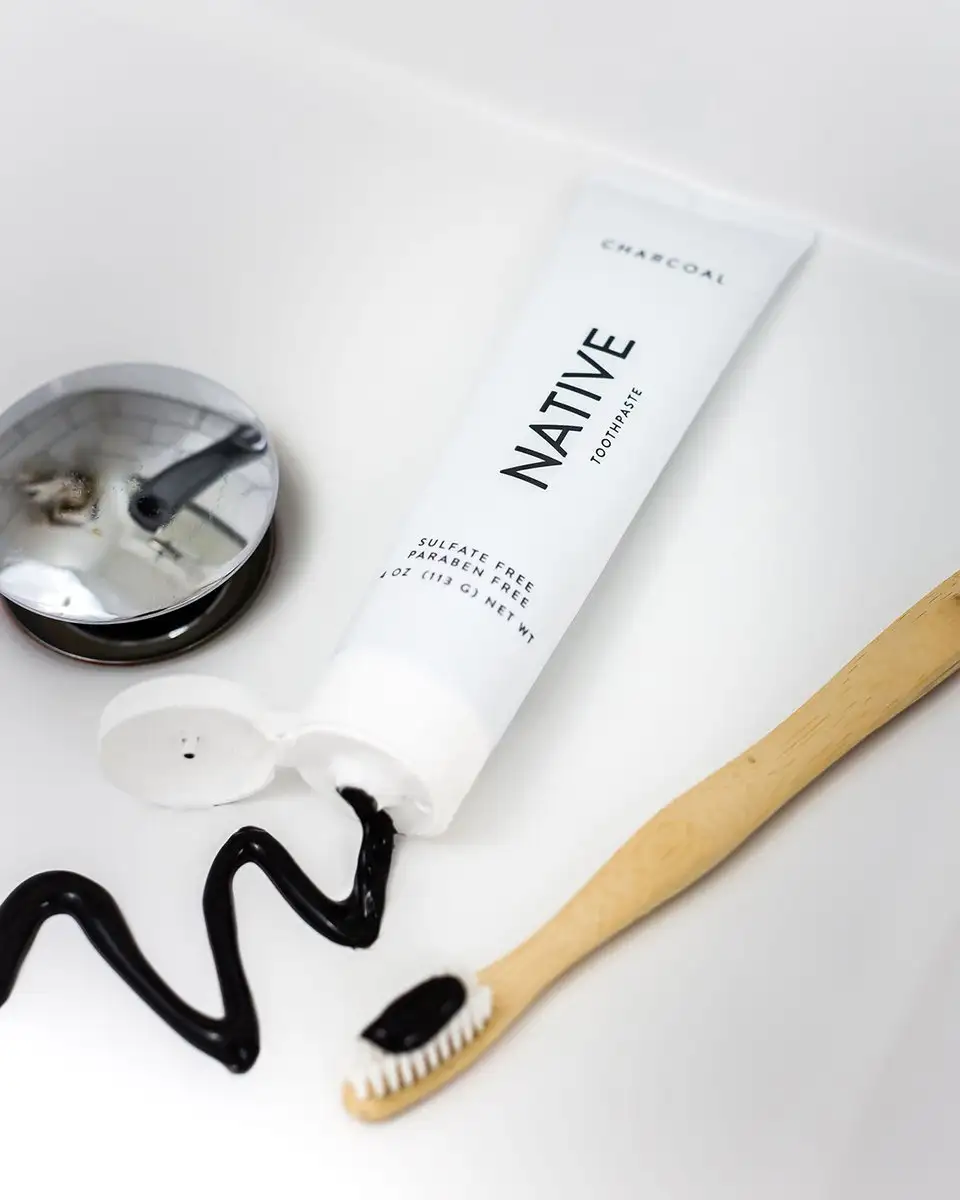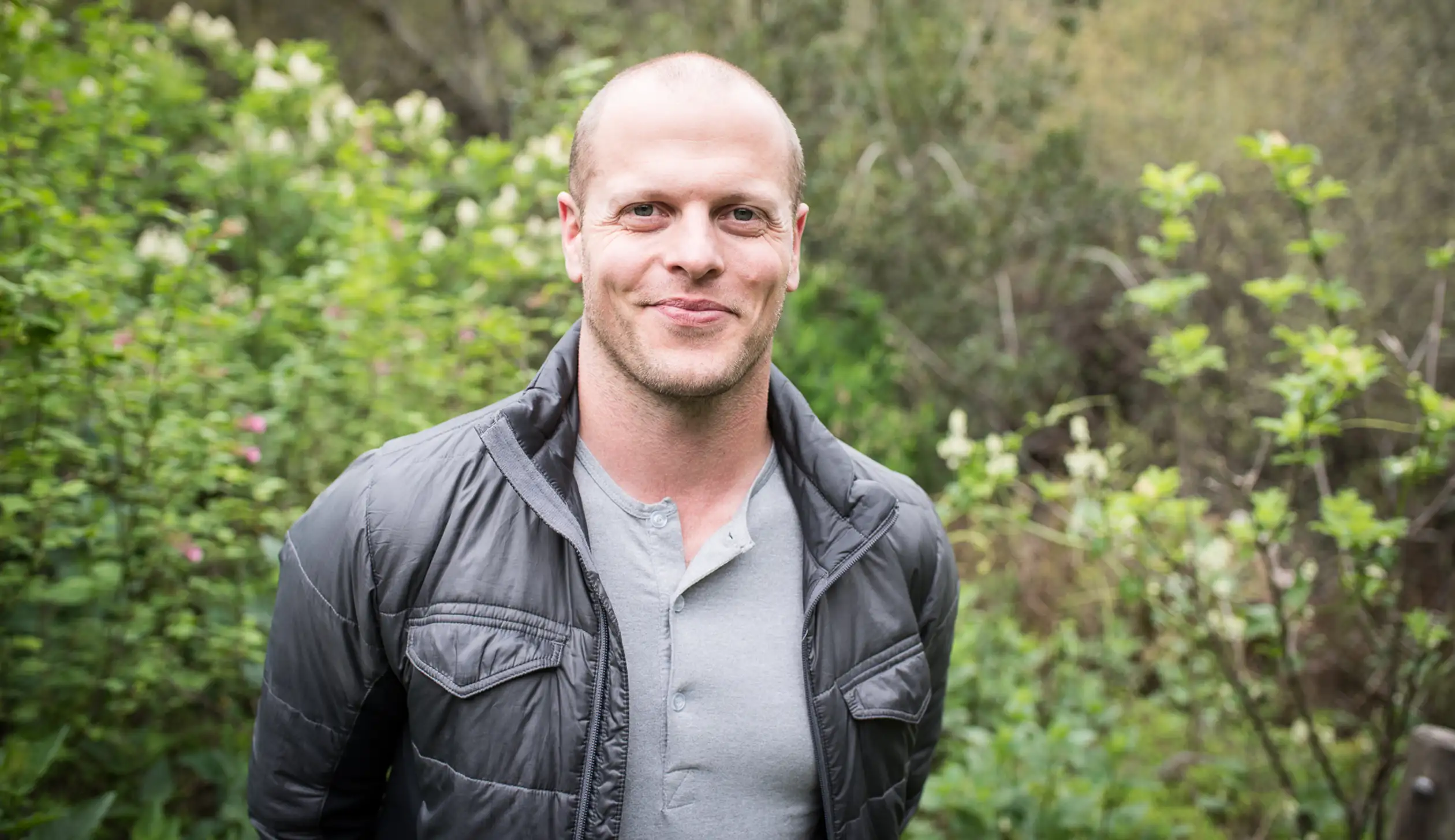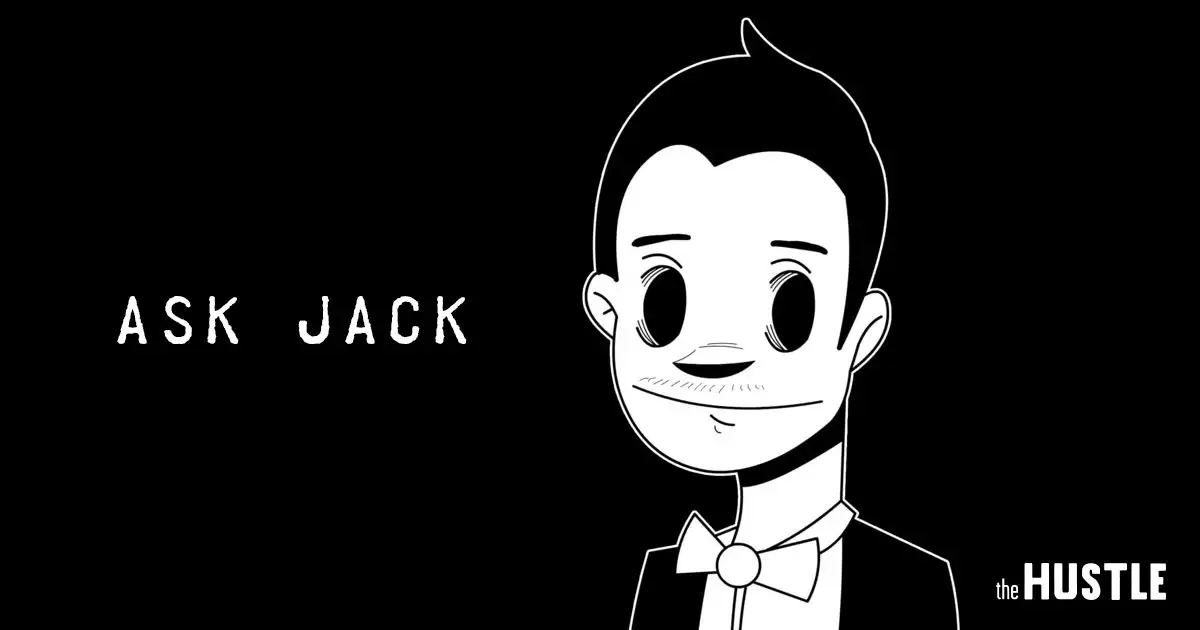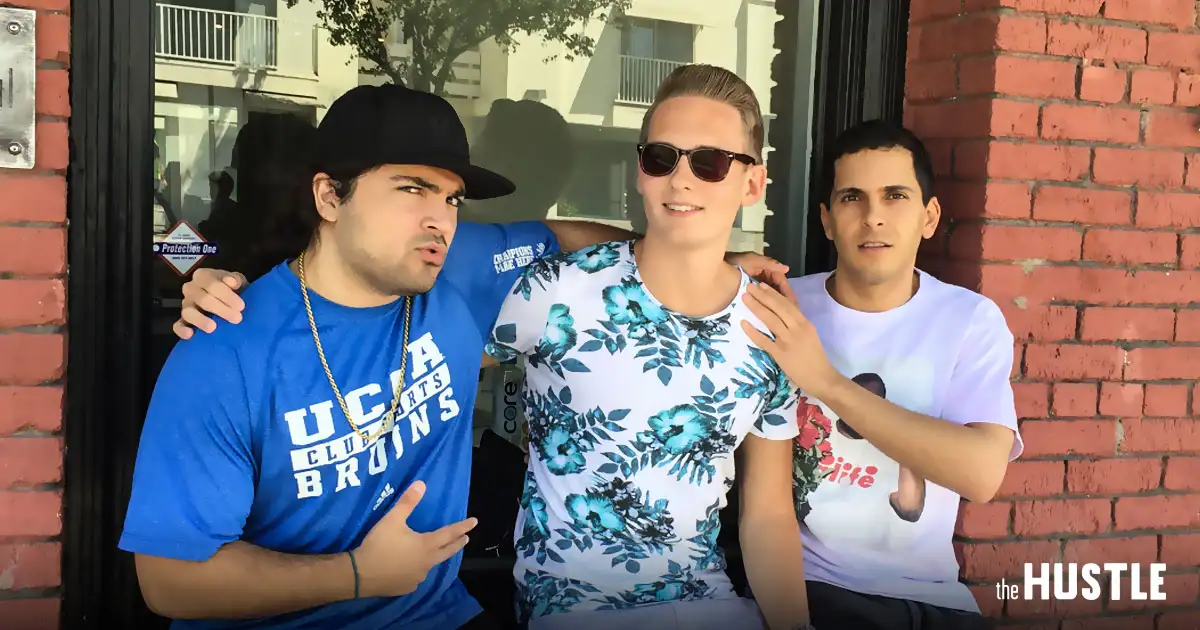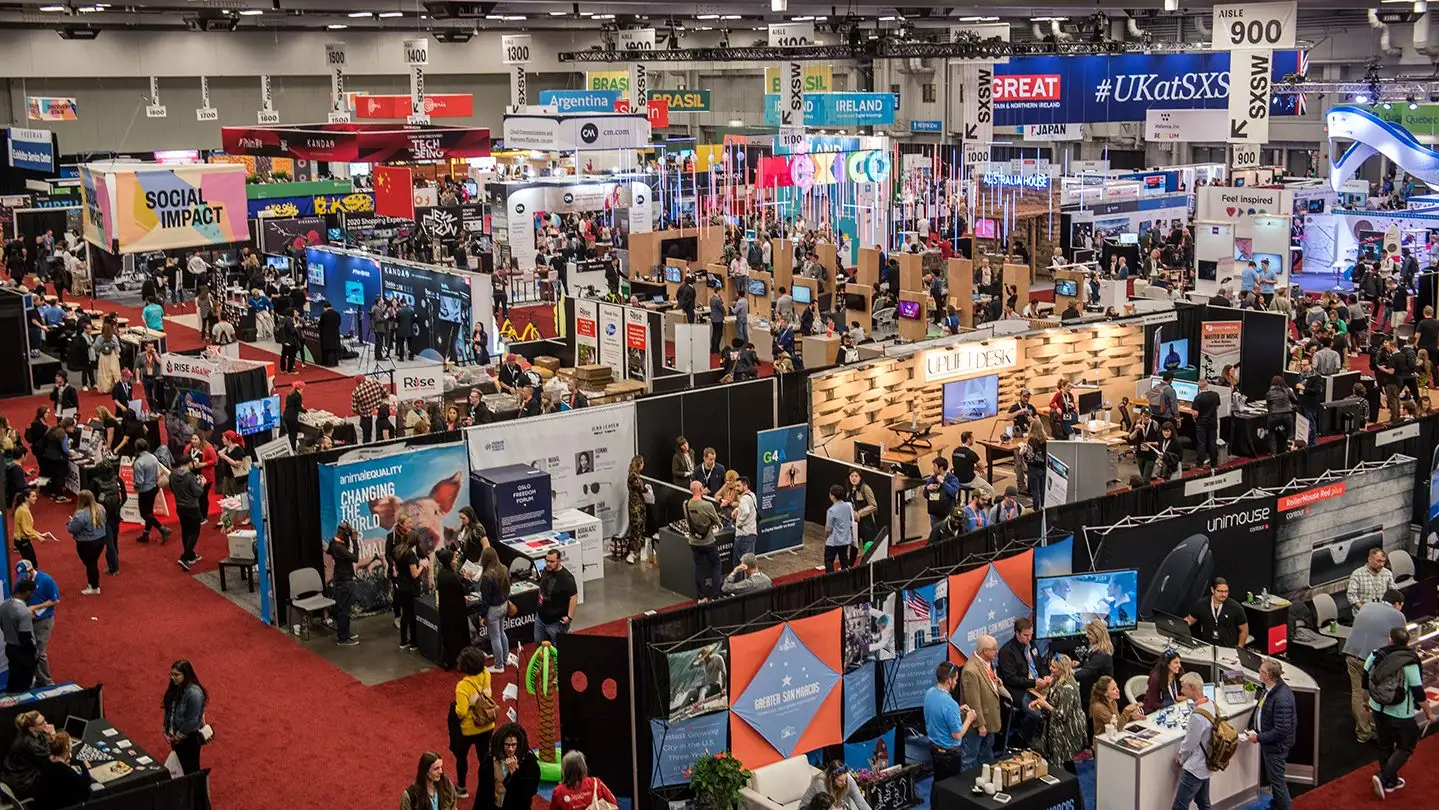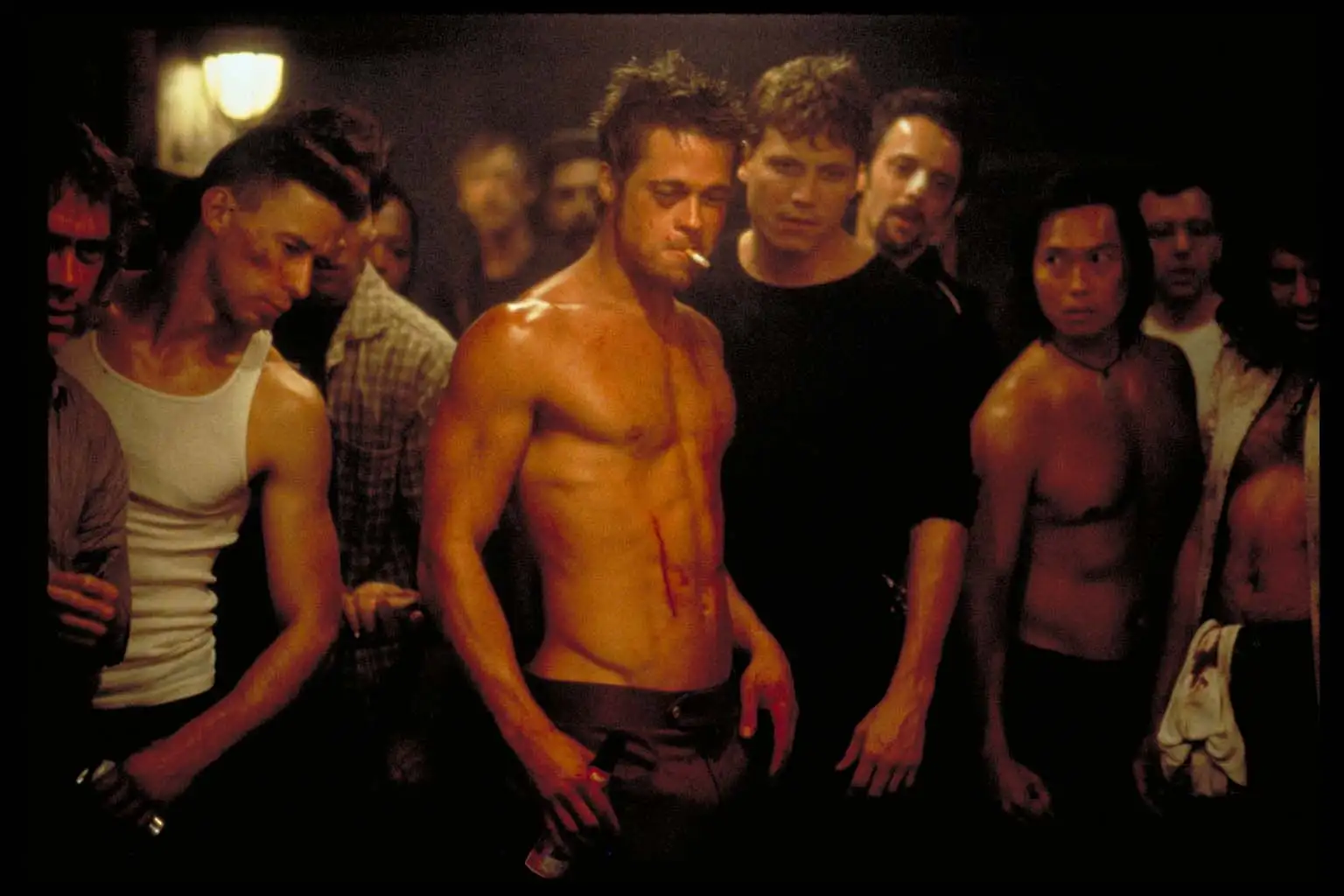Dave Nemetz is most known for founding two popular media companies.. He co-founded popular sports site Bleacher Report at the ripe age of 23 and proceeded to sell that for a reported $200m+ to Turner only 5 years later. He spent his time post-sale as an advisor to both The Bustle and Elite Daily (ED later sold for around $50m) until he started getting the itch to start another company.

This led to the creation of Inverse, a website stocked full of a variety of content that is geared towards young men. Inverse is off to a quick start having raised $6m last year, already ranking as one of the Top 200 mobile trafficked US sites, and even has two original shows on Facebook’s Watch platform.
In a private live stream AMA (Ask-Me-Anything) for our Hustle Ambassadors, Dave gave a lot of great insight into the successes he has achieved with multiple media companies.
Wow, that sounds awesome. How do I become a Hustle Ambassador you ask?
All you have to do is refer 4 of your friends, family, or even strangers to subscribe to our daily newsletter using your tracking link. After you do that, we will shoot you a golden ticket (OK, it’s just an email) with a link to join our private Hustle Ambassador’s group.
Before Starting Bleacher Report, a media company Dave started and sold for $200m
It goes back, basically, to 2005. I had just graduated from undergrad. I went to USC. Go Trojans! Which we got demolished by Notre Dame over the weekend, so not much to be proud of right now. But yeah, I was just getting out of school, and I had majored in film at USC and kind of had aspirations of going into the entertainment industry.
And yet, for me, at the time, that kind of thing, growing up, that always meant going into TV or to features, and I ended up going into the mail room at the Endeavor Agency, which is now WME, William Morris Endeavor, but this is pre-merger.
I went to the mail room and then ended up as an assistant on the desk of one the agents. I was literally Lloyd from Entourage. Entourage was even based on Endeavor (WME) at the time. Ari Emanuel is the basis for Ari Gold, and they shot episodes in the office.
Bleacher Report started, or the idea started, right around that same time, as basically an idea amongst me and a few other friends, just basically over beers, “Hey, we’re all interested in digital media, we’re all interested, heavily interested in sports, big sports fans.” And we kind of saw this opportunity for building something different. Sports that spoke to younger fans and fans of teams that … and kind of bypassed the big national conversations to really focus on the team level conversations.
It was just an idea for a while. But slowly, while we were working these other jobs, started to put the pieces together to the point where it took off. So, it was a very organic thing. Just kind of the fact that we were really passionate about it andhad this persistence to keep making some progress. It wasn’t like that from the very beginning, thinking we’re going to start a business. This is what we’re going to do. We let it evolve organically to the point where you said, “All right, we can start a company. We know what we’re doing here. Let’s do it.”
On getting users for early Bleacher Report
How long until we saw traction? It was a while. And even like the traction that we thought we were seeing was like, nothing. At the time, when we had 10,000 people a month, we’re like, “Wow, this is great.” As we know in the media space, 10,000 uniques is not even worth getting out of bed over. Don’t mean to discourage anyone who’s got 10,000 now, because you can definitely turn it into something.
We were like, “Wow, 10,000 people. That’s crazy.” So, it took us a while, and most of the time it was like a side hustle.
On turning Bleacher into a full-time job
Eventually, we got to the point where I kind of decided,”Let’s all quit our jobs and do this because we’re young, we have some traction, we have the idea, and we have nothing to lose right now. We can always go back to these fresh out of college jobs, or go do something else.”
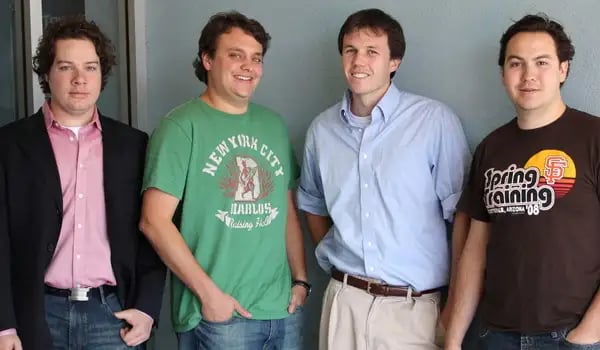
We finally quit and got started about a year and a half after first kind of birthing the idea. I think the real big kind of eye-opening moment was after doing that, and after kind of making some more progress, we started to get noticed by people in the mainstream media. I think there was one meeting where Foxsports.com reached out to us, and they wanted us to come in and talk about a partnership, and we put our first biz dev deal together with them. And that was like, “All right.” We were like, “We’re just three guys in a room. We’re starting to get noticed by people.” That led one thing to another, and yeah, that was a big turning point.
On getting acquired
That also happened pretty organically. We had had a lot of kind of close encounters previously, even going back to like right after we launched where we were so green, people would come in and be like, “Hey, what do you think about us acquiring you?”
We would get really excited, and probably spent way too much time talking about it, then nothing would happen. And we had a couple other close calls, but it was more like people kicking tires on us. Which you kind of learn after a while that there is a lot of tire kicking that goes on, where people just want to get a look at your numbers, and kind of come in and, yeah, basically take a look under your skirt, essentially, and then nothing ever happens with it.
And then, when the Turner deal started to kind of come together, we had just raised a really big round of funding. We had just raised $20 million, led by Oak, and the idea there was, that was our big, big-win kind of investment.
And Turner came in, it started as a biz dev meeting, and quickly transitioned to them saying, “Hey, we’ve decided we want to buy a digital sports property because we don’t have one, and we want one as a centerpiece of kind of our digital portfolio.” And we kind of started having that conversation. It really was driven by them.
It took a while for us to be convinced that it was the right thing to think about. It had helped that we had just raised all that money, so we didn’t need to get acquired. But they kind of kept moving the process, and eventually, we got more serious about it. We started to kind of look across other potential buyers, and kind of thought more about, “Hey, this might be the time to do it.” Ultimately, Turner was the best partner with the right offer, and we went for it. At that point, we had been, if you trace back to that first conversation over beers – to the deal closing, it had been about seven years.
It felt like, wow, we really, we’d been through a lot, and this might be the right time to kind of go out on top.
On regrets
I’d say one thing is that we were so focused on getting the deal done and closed… which, it was a six month process, heavy due diligence, lots of back and forth, and a lot of sleepless nights where you’re wondering is this thing going to happen or not. That I didn’t really think that much about what was going to happen after it was done.
By the time it closed, I was so exhausted that it took a while just to kind of recover and start to focus on, “alright, what next?”
—
Yeah, I mean, not a lot of regrets about that deal or how it turned out. Obviously, it’s really gratifying to see Bleacher keep doing well post-acquisition. Always makes you think what would have happened if we’d have stayed independent, but you can’t think about that.
On starting Inverse
Inverse came together a couple years after the Bleacher sale. It took a lot of time thinking about what category and what type of business I wanted to do next… whether it was going to be media or something else. Ultimately, I love the media business, and just believe that there’s going to be so much more disruption and opportunity in media, and especially digital, that I decided to do Inverse. I picked the category based on something I’m really passionate about, and something that I think there’s a huge white space around. We’re all about sparking curiosity at Inverse, and covering these deep stories in science, and technology, and innovation.
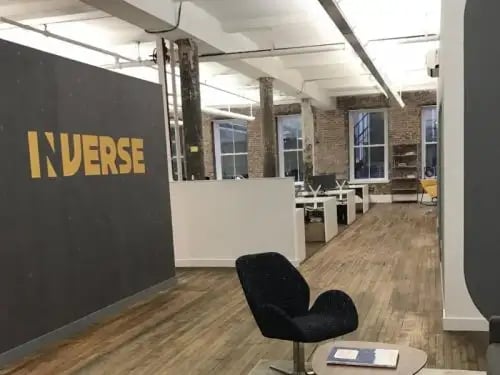
Pulling it together was great. I started off working with some people from Bleacher, so kind of having that network of people to tap into, and that even the extended network, just being about to kind of talk to people at other companies that had done it before, done it differently, recruit from different places. I was able to really pull together a team that brought a lot of strengths very quickly.
On Inverse having much quicker growth than Bleacher Report
I mean, we were able to hit the ground running, and part of that was when Bleacher started, we bootstrapped the whole thing ourselves, so we kind of had to scrap things together.
Part of it is how much the industry has changed. When we started Bleacher Report, literally … I mean Facebook existed, but it was not the Facebook that exists today. There was no viral content on Facebook. I guess, we’re going back to that old era now that Facebook keeps screwing over publishers, but yeah, I mean not being able to take advantage of new distribution channels that have emerged over the last five, six years, is something that allows us to scale Inverse a lot more quickly.
On Barstool and their business model
Man, I think of Barstool as kind of like the Breitbart of sports media. They cater to their audience and their audience is super hardcore, super committed, and will follow them anywhere, which is super valuable. But they don’t cooperate well, they don’t blend well with your kind of traditional mainstream media, which is what we saw with the ESPN thing.
Brand safety has been a huge issue in the advertising world and I think that’s going to hurt them, ultimately.
That being said, clearly they have an audience that will kind of eat up anything they put out there, and those people are also willing to pay directly. So, that’s super valuable. I don’t think it’s a question of whether it’s sustainable, I think it’s a question of what path do they want to go down. Do they want to try to be mainstream, and distance themselves from that kind of brand they built? Or are they going to double down on the, “This is who we are. This is our brand.”
On how crowded the media space has gotten
Yeah, it’s much, much more crowded than the Bleacher days, and, like I was saying, it changes so much more quickly, in terms of platforms and how content gets distributed, how things are monetized. And I think also, people catch up to those changes much more quickly.
There were times at Bleacher where we would figure something out, maybe it was something on SEO, maybe it was a certain way we were selling something. We felt like we had so much runway to go out and take advantage before anyone else caught up to what we were doing. And these days, that’s just not the case anymore, because everyone is moving a lot faster, even the big guys are paying closer attention.
A lot of because smart digital media people have proliferated everywhere. They’re not just holed up in startups. Traditional companies have really started to hire smart digital people. But today, yet to your point, all these boutique companies, I think there has been this swing of kind of going for people chasing scale.
So, we’re talking boutique digital media companies. And yeah, I think that is the new trend. I think it’s the right one. Too many people were chasing scale and trying to be these big media platforms, and followed the BuzzFeed model. And you know, there’s only one BuzzFeed, and even they have kind of their own challenges. I think some of the successful things they’ve done within BuzzFeed are like, Tasty, which is much more, even though it’s massive, is much more defined within a niche.
I think when you look back at the history of media there are clearly defined categories that work and that their audience is based around. And yeah, I think the kind of the focus model, it works a lot better. It’s much more sustainable as a business model.
On the importance of a media company having a unique voice.
It’s everything. I mean, I think that’s why we’re seeing this kind of pendulum swing back towards more niche, boutique media companies, away from the big, kind of general interest aggregator type company, especially, given how important the news feed is to distributing content. The way that Facebook has continued to hone their filters, you don’t see 10 versions of the same story anymore. You see one version, and it’s the one that they pick as the most original, unique one to distribute in the news feed.
Not that Facebook is everything, you can’t be all Facebook, but that voice and having that direct relationship with your audience is so key. Because at the end of the day, if you’re commodified, and you’re just kind of using, leveraging distribution to get your audience, they’re not going to come back. They’re not going to stick.
Nohome
